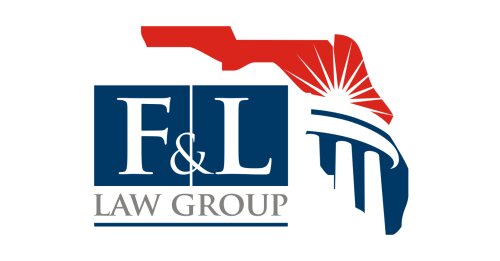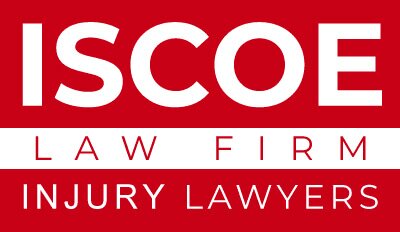Best Travel Accident Lawyers in Florida
Share your needs with us, get contacted by law firms.
Free. Takes 2 min.
Or refine your search by selecting a city:
List of the best lawyers in Florida, United States
About Travel Accident Law in Florida, United States
Travel accident law in Florida covers legal claims and disputes that arise from injuries suffered while traveling. This may include accidents involving automobiles, buses, taxis, ride-sharing services, airplanes, cruise ships, or even accidents occurring at hotels and resorts. Florida is unique due to its popularity as a travel and vacation destination, along with its intricate network of roads, airports, and ports. If a person is injured while traveling in Florida, they may be entitled to compensation under various laws designed to protect both residents and visitors.
Why You May Need a Lawyer
There are several common situations where individuals may require legal assistance after a travel accident in Florida. For example, if you are injured as a result of a car crash while renting a vehicle, or if you suffer a slip-and-fall at a hotel, you may face complex questions about liability and insurance coverage. Other scenarios include accidents during recreational activities, injuries on cruise ships departing from Florida ports, or being hit as a pedestrian in tourist areas. Legal representation is beneficial for interpreting local laws, dealing with insurance companies, asserting your rights, and securing fair compensation for medical bills, lost wages, and pain and suffering.
Local Laws Overview
Florida's travel accident laws contain important provisions that are particularly relevant to travelers:
- Florida follows a "no-fault" car insurance system, meaning your own insurance typically covers injuries regardless of fault in auto accidents. However, severe injuries may allow you to pursue a claim against an at-fault party.
- The state adheres to a statute of limitations, which generally gives injury victims four years from the date of the accident to file a lawsuit for personal injury. For cruise ship accidents, a much shorter deadline may apply as dictated by your ticket and federal maritime law.
- Florida’s comparative negligence law can impact compensation if you are found partially at fault for an accident.
- Premises liability laws require businesses, hotels, and tourist attractions to maintain safe premises for visitors. If a property owner fails to address dangers, they may be held responsible for resulting injuries.
- Accidents on public transportation, ride-shares, or out-of-state vehicles can involve both state and federal laws, making claims more complex.
Frequently Asked Questions
What should I do immediately after a travel accident in Florida?
Seek medical attention, document the scene with photos, collect witness information, file an official report (such as a police or incident report), and notify your insurance provider. If possible, keep records of all expenses and communication related to your accident.
Can I file a lawsuit if I am from another state or country?
Yes, non-residents may file claims in Florida courts if the accident occurred within the state. Jurisdiction rules will apply, and you may benefit from working with a Florida-based attorney familiar with local procedures.
Is there a time limit to file a claim?
Generally, you have four years to file a personal injury claim in Florida. However, there are exceptions for certain cases such as cruise ship injuries, where the timeframe can be as short as one year. It is important to act promptly.
What if I was partially at fault for the accident?
Under Florida’s comparative negligence law, you can still recover damages even if you are partly at fault, although your compensation will be reduced by your percentage of fault.
Do I need to hire a lawyer for a travel accident claim?
While it is not legally required, hiring a lawyer is highly recommended, especially if your injuries are serious, liability is disputed, or insurance companies are uncooperative.
What compensation can I receive for a travel accident?
Compensation may cover medical expenses, lost wages, rehabilitation costs, pain and suffering, property damage, and other related losses, depending on the circumstances.
How are travel accident claims involving rental cars handled?
Rental car accident claims may involve the renter's personal auto insurance, the rental company’s policy, and possibly the credit card used to rent the car. Determining which policy applies can be complex and might require legal advice.
What happens if I was injured on a cruise ship or during a recreational activity?
Cruise ship injuries are governed by specific federal maritime laws and the terms of your ticket agreement. Claims often have unique procedural rules and shorter filing deadlines.
Will my health insurance cover injuries from a travel accident?
Your health insurance may cover medical treatment, but other insurance such as personal injury protection, liability, or travel insurance may also be applicable. Coordination of these benefits can be complex.
Are injuries on rideshares or public transportation covered differently?
Rideshare and public transportation accidents involve unique insurance and liability considerations. Florida law requires rideshare companies to maintain certain insurance minimums, and filing a claim may involve multiple insurance carriers.
Additional Resources
If you need more information or immediate assistance, consider contacting the following resources:
- Florida Department of Highway Safety and Motor Vehicles - For crash reports, driving laws, and insurance requirements.
- Florida Attorney General’s Office - Provides consumer protection information and resources for victims.
- Florida Bar Association - Offers lawyer referral services and information on legal rights for accident victims.
- U.S. Department of Transportation - Guidance on transportation-related accidents and federal regulations.
- Local Legal Aid Societies - Assistance for those who qualify for low-cost or pro-bono legal help.
Next Steps
If you have experienced a travel accident in Florida, your well-being and legal rights are paramount. Begin by ensuring your immediate medical needs are addressed and document the incident as thoroughly as possible. Keep all records, receipts, and reports related to your accident. If you find yourself facing challenges with insurance claims, liability disputes, or unclear legal procedures, consider consulting a qualified Florida attorney experienced in travel accident claims. You can use the Florida Bar Association’s referral service, reach out to a local legal aid society, or contact a private law firm for a consultation. Timely action can make a significant difference in the outcome of your claim.
Lawzana helps you find the best lawyers and law firms in Florida through a curated and pre-screened list of qualified legal professionals. Our platform offers rankings and detailed profiles of attorneys and law firms, allowing you to compare based on practice areas, including Travel Accident, experience, and client feedback.
Each profile includes a description of the firm's areas of practice, client reviews, team members and partners, year of establishment, spoken languages, office locations, contact information, social media presence, and any published articles or resources. Most firms on our platform speak English and are experienced in both local and international legal matters.
Get a quote from top-rated law firms in Florida, United States — quickly, securely, and without unnecessary hassle.
Disclaimer:
The information provided on this page is for general informational purposes only and does not constitute legal advice. While we strive to ensure the accuracy and relevance of the content, legal information may change over time, and interpretations of the law can vary. You should always consult with a qualified legal professional for advice specific to your situation.
We disclaim all liability for actions taken or not taken based on the content of this page. If you believe any information is incorrect or outdated, please contact us, and we will review and update it where appropriate.
Browse travel accident law firms by city in Florida
Refine your search by selecting a city.

















